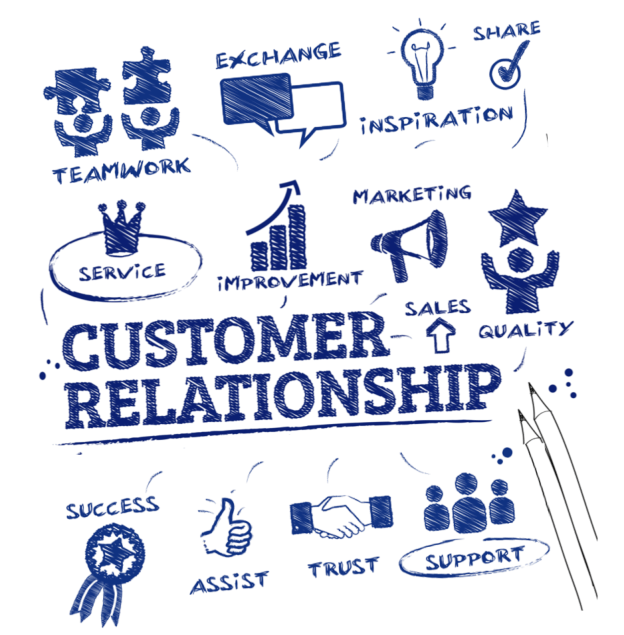Building Long-Term Customer Relationships: Improve Your Financial Stability

We know that building long-term relationships with your customers makes good sense for your customer experience. But good relationships are also a key factor in making your business more financially stable and improving your bottom line.
The answer lies in nurturing the relationship, building a sense of trust and satisfaction that leads to regular sales and a boost to your revenue.
Nurturing customer relationships that drive your profits
A business with no customers has no future. But a business with a pipeline of happy, satisfied customers can rest assured that it has a more stable and successful future ahead of it.
This network of happy customers doesn’t appear overnight. It takes time. But once you’ve built these foundations, you’ll begin to see the financial and non-financial benefits.
To drive your financial stability through customer relationships, you’ll need to:
- Build trusted relationship with your customers – Having strong relationships with customers helps to create loyalty. If you can succeed in building this feeling of trust between both parties, you’re onto a winner – and can rest assured that you have a receptive audience who will want to buy your products and services.
- Aim for repeat business and increased sales – A trusted customer relationship can lead to repeat business. As the old saying goes, you only have one chance to make a first impression. But if you continue to make a good impression, time after time, sale after sale then your customers will come back for more.
- Turn your customers into brand advocates – customers that see the value in your proposition, and repeatedly buy from your brand, become advocates for your brand. They’ll tell their friends, their colleagues and others in their network just how great you are – and that’s the best kind of advertising a company can buy. This leads to referrals and word-of-mouth promotion, creating another channel for enquiries and sales.
- Learn from your customers – Deeper relationships also help you understand your customers’ needs in a broad and detailed way. Talk to your satisfied customers, listen to their feedback and use this information to develop and build products or services that truly meet their needs and expectations.
- Keep the business competitive and agile – Closer customer relationships help you stay competitive in your industry by offering solutions that cater specifically to your target audience. If there’s a significant change in your customers’ needs, or a seismic shift in the market, you can pivot, diversify and take the business in a new direction.
- Keep the cash rolling in – a satisfied customer base will spend more readily and will also spend more. These benefits deliver a more predictable level of sales – a huge advantage for any business. Predictable sales = stable revenue + positive cashflow. And that’s excellent news for your financial health and your end profits. This means:
- You can accurately predict your income over a given period
- You can easily cover your operational expenses and ad hoc costs
- You have money to invest back into the business for development or growth
- You have better end-of-period profits, keeping you and your investors happy.
Talk to us about improving the financial stability of your business
Long-standing, evolving and trusted relationships with customers are the bedrock of your business. If you get it right, these solid relationships can result in increased sales, income and profits – all of which keeps the business more financially stable.
If you want to know more about nurturing customer relationships, and how you can tie this into your financial stability, please contact us.


